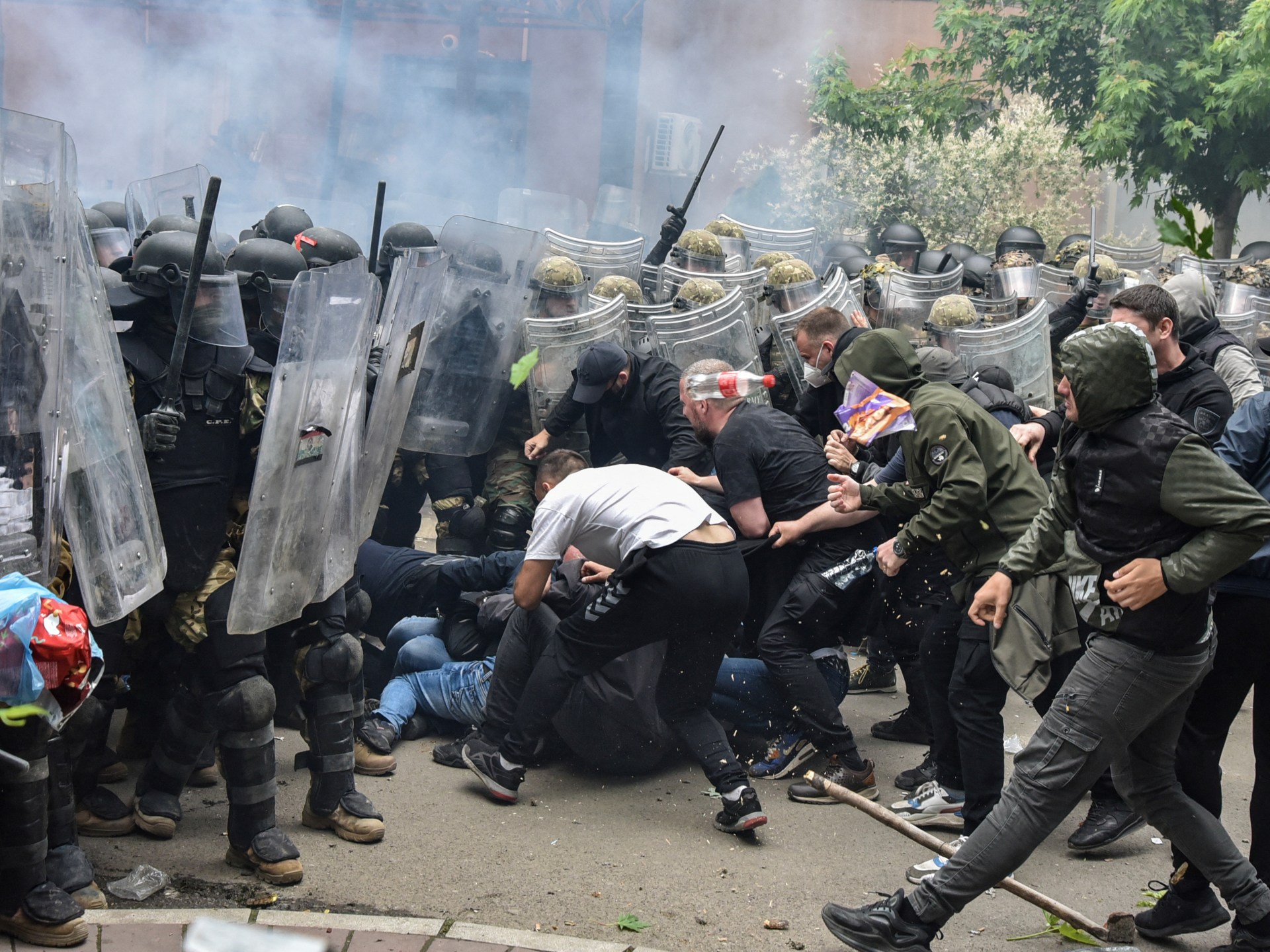The North Atlantic Treaty Organization (NATO) announced the dispatch of the Western Balkans Standby Operations Force to Kosovo to cope with the recent unrest in northern Kosovo, where 30 members of the alliance-led international peacekeeping force were injured.
NATO also instructed to reduce the readiness period required to deploy another multinational reserve battalion from two weeks to just one week, in case international forces need to be reinforced.
Stuart Munch, commander of NATO forces in the Italian city of Naples, urged all parties to stop the violence and avoid actions that undermine peace in Kosovo, stressing that sending troops "is a precautionary measure to ensure that they have the capabilities they need to maintain security."
NATO Secretary-General Jens Stoltenberg on Tuesday condemned "unacceptable" attacks on NATO's peacekeeping force in Kosovo by Serbian demonstrators, calling on Pristina and Belgrade to work for "calm".
"We strongly condemn these unprovoked attacks against our forces in northern Kosovo," Stoltenberg told a news conference in Oslo, which injured about 30 soldiers from the NATO-led peacekeeping force in Kosovo (KFOR).
He warned that "violence is turning Kosovo and the entire region back" and threatening the aspirations of Balkan countries to move closer to NATO, and said that "Pristina and Belgrade must take concrete steps to calm the situation by refraining from any new irresponsible behaviour and engaging in EU-facilitated dialogue, which is the only way to achieve lasting peace."
Serbian demonstrators are still gathering in front of the municipality of Zvecan in northern Kosovo, following clashes in the city that injured 19 Hungarians, 11 Italian NATO peacekeepers (KFOR), and about 50 demonstrators.
The Serb demonstrations in this region come in rejection of the installation of new mayors from the Albanian minority in 3 municipalities after elections boycotted by the Serb minority, in which the turnout did not exceed 4%.
De-escalation
In Russia, the Foreign Ministry said decreasing tensions in Kosovo needed decisive steps, adding that NATO peacekeepers in Kosovo had not only shown their lack of professionalism but had also become an escalating factor.
Moscow calls on the West not to provoke Belgrade, to influence the Pristina authorities on the situation in Kosovo, and to stop blaming Serbs for incidents in Kosovo.
In Belgrade, Serbian President Aleksandar Vucic said 52 demonstrators from Kosovo's Serb minority had been wounded in clashes with peacekeepers in northern Kosovo.
The Serbian president's remarks came during a meeting with the ambassadors of China and Belarus in Belgrade, where he briefed them on the latest developments in northern Kosovo.
Calming measures
EU foreign and security policy chief Josep Borrell said he had contacted Kosovo Prime Minister Albin Kurti and Serbian President Aleksandar Vucic and asked them to take measures to calm the situation in northern Kosovo.
Speaking at a press conference in Brussels, Borrell said the EU condemned the violence, warning that it could lead to a dangerous situation. He said he expected the Kosovo authorities to remove police forces from the vicinity of municipalities in the north as a first step and for the protesters to calm down.
Kosovo (the province that declared independence in 2008) has seen frequent clashes in the north, with Belgrade encouraging Serbs to challenge the country's authorities seeking to impose their sovereignty over the entire region.
Some 120,1 Serbs live in Kosovo, a country of 8.<> million people, the overwhelming majority of whom are Albanians.

